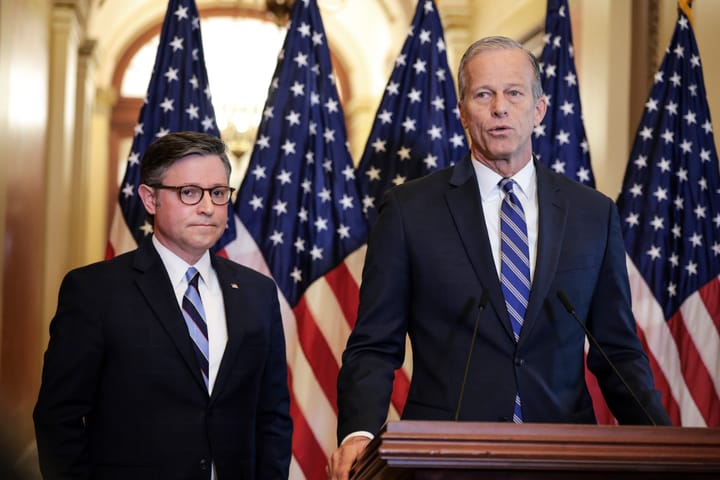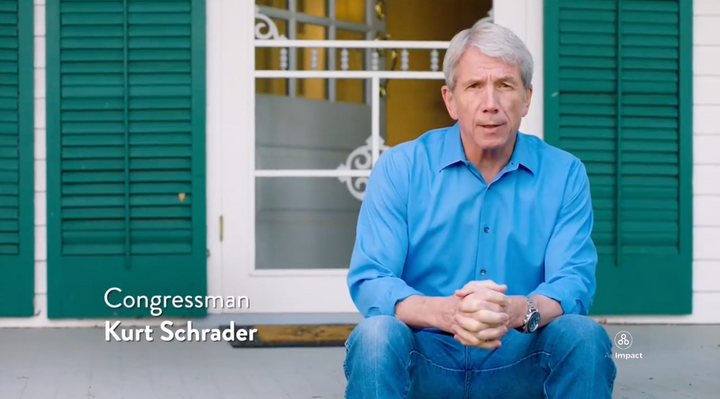Corporations were empowered by the Supreme Court in its 2010 Citizens United v. FEC decision to spend unlimited amounts of money, directly from their treasuries, on American politics because, the court reasoned, they are “associations of citizens” and thus must not be prevented from exercising their First Amendment right to spend money as they please. While for the most part corporations are not often buying political ads, the years following the decision have seen an explosion in spending by independent political groups, often flooding elections with more money than the candidates themselves spend—hitting a record high $3.2 billion in the 2020 election cycle, according to OpenSecrets.
It’s impossible to tell how much money corporations have spent on politics since 2010 because they rarely make direct political expenditures that have to be reported to the Federal Election Commission. But billions of dollars in election spending have been funneled through nonprofit organizations that are not required to disclose their donors and there is currently no way for that spending to be fully traced back to its source. In its Citizens United majority opinion, the Supreme Court defended the concept of disclosure and noted that “prompt disclosure of expenditures can provide shareholders and citizens with the information needed to hold corporations and elected officials accountable.” But efforts to improve disclosure by Democrats have repeatedly been filibustered by Senate Republicans. Justice Stevens warned in his Citizens United dissent that the decision “[appeared] to afford the same protection to multinational corporations controlled by foreigners as to individual Americans.”
While the issue of dark money has been intensely partisan in Congress, there has been somewhat more agreement on the threat of foreign interests exploiting campaign finance law loopholes to illegally influence elections in the U.S. For example, six House Republicans recently co-sponsored a Democratic bill that would prohibit foreign donors from contributing to ballot measure campaigns.
Now, a nonprofit called Free Speech for People is working to advance legislation at the local, state, and federal levels that would prohibit foreign-influenced corporations from spending money on politics in the U.S. Under the definition in their model legislation, companies where a single foreign investor owns or controls one percent or more of its total shares, equity, or other ownership interest would be considered foreign-influenced and would be prohibited from making political expenditures or donating to political committees or nonprofits that spend money in U.S. elections. The ban would also apply to companies where two or more foreign investors own, in aggregate, stakes worth five percent or more. According to Free Speech for People, the bills would prevent virtually all S&P 500 companies from spending from their treasuries on politics in the U.S., though those companies would still be allowed to sponsor employee-funded PACs that could make political donations.
Ron Fein, legal director with Free Speech for People, explained how the group decided on the one percent threshold for defining a foreign-influenced corporation. “You need several hundred million dollars to own one percent of an S&P 500 company,” Fein said. “If you interviewed the CEO of any S&P company and said, ‘Off the top of your head, who owns one percent or more of the stock,’ they would probably know, and as a rule of thumb if you have one percent and you have an issue you wish to discuss with the CEO, you can get your call returned within 24 hours.” One percent had been the threshold for the amount of stock shareholders had to own to have a proposal included in a company’s proxy statement to be voted on by the company’s shareholders, but that threshold was eliminated under new Securities and Exchange Commission rules that took effect on Jan. 1.
According to a report from the Center for American Progress, which has partnered with Free Speech for People on their efforts, foreign investors have been increasingly buying stakes in American companies. “In 1982, foreigners owned just 5 percent of U.S. corporate stock,” the group found. “That percentage grew precipitously to 26 percent by 2015. The latest estimate is that foreign ownership of U.S. stock now stands at approximately 35 percent.”
“The idea of this legislation is to say is that where corporations don’t meet the definition that Justice Kennedy put in Citizens United of associations of citizens, and where to the contrary they come under the influence of foreign entities through significant investments, they they don’t merit those protections that Citizens United extended to them,” Fein said.
Free Speech for People recently celebrated a victory in San Jose, California. On March 22, the San Jose City Council voted 9-1 to endorse a memorandum that requests its staff to prepare an ordinance that would require corporations to certify that they are not foreign-influenced before making political donations or expenditures in the city’s elections. Free Speech for People says the measure would prohibit companies in the surrounding Silicon Valley region including Apple, Alphabet, and Meta from spending money in San Jose elections.
“The San Jose City Council’s passage of this model bill marks a major victory for our democracy,” said John Bonifaz, president of Free Speech For People and a constitutional law attorney, in a press statement.
San Jose appears to be on the verge of becoming the third city to pass a ban on foreign-influence corporate spending. Seattle, Washington passed an ordinance to do so in January 2020 and St. Petersburg, Florida passed a version in 2017, though it has since been made unenforceable. In 2021, Florida state Republicans and Gov. Ron DeSantis approved a bill that preempts municipalities in the state from enacting contribution limits that differ from the statewide limit of $1,000.
State versions of the model bill are currently pending in California, Colorado, Massachusetts, New York, Maryland, Maine and Minnesota.
In January, the New York State Senate passed a version of the bill, which is sponsored by Democratic Senate Deputy Majority Leader Michael Gianaris and won support from five of the chamber’s fifteen Republican members. The Assembly version is sponsored by Democrat Latrice Walker. If it passes the Assembly and becomes law, New York would be the first state in the nation to ban foreign-influenced companies from spending money on its elections.
At the federal level, Rep. Jamie Raskin (D-Md.) introduced the Get Foreign Money Out of U.S. Elections Act in December 2021. The bill, like other bills based on Free Speech for People’s model, bans foreign-influenced corporations from spending money on elections in the U.S. Companies would be required to certify to the FEC within 7 days of making a political donation or expenditure that they are not foreign-influenced, according to the definitions spelled out by the bill. It would also make it illegal for any organization that receives donations from corporations to make political expenditures or donations unless they receive certification from all their corporate donors that they are not foreign-influenced.
Raskin’s bill currently has 24 co-sponsors, all Democrats, and it has been referred to the House Administration Committee where it has sat without any action. The House Administration Committee is chaired by Rep. Zoe Lofgren (D-Calif.), whose congressional district includes the area of South San Jose.



